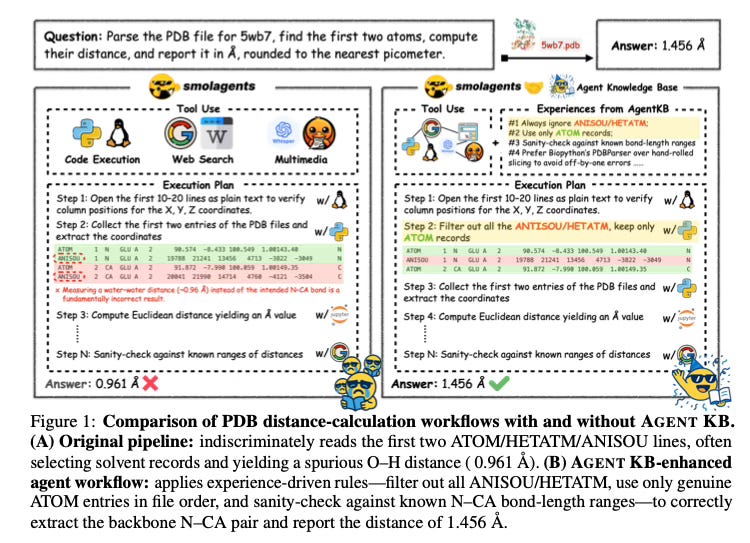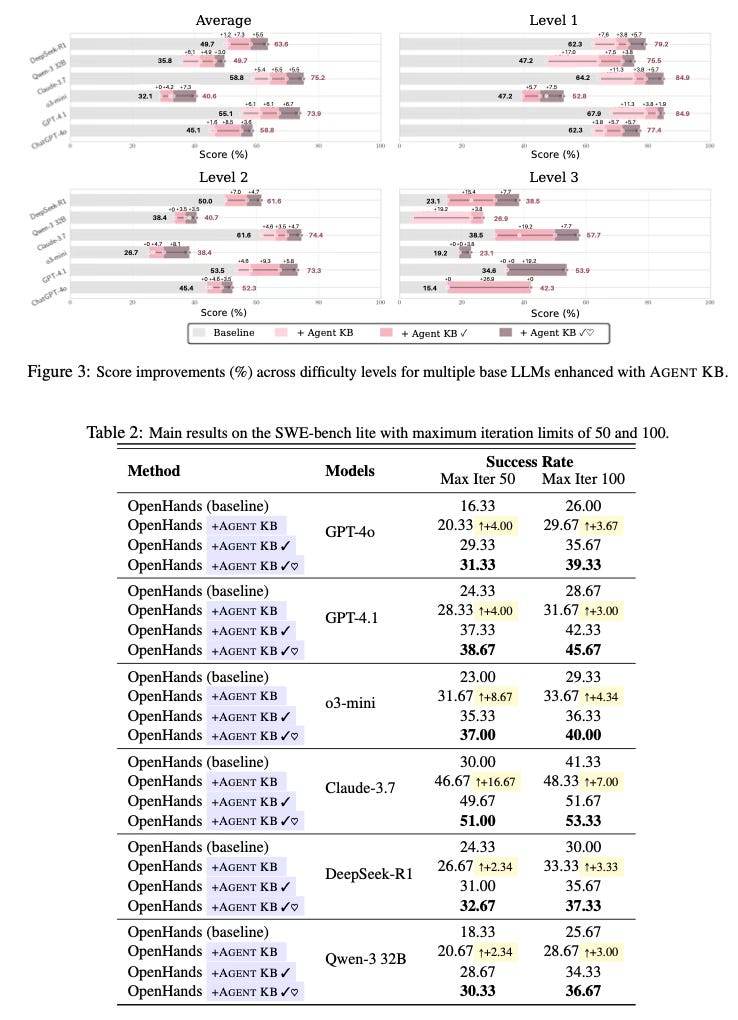Today's paper introduces AGENT KB, a hierarchical experience framework that enables language agents to learn from past problem-solving experiences and share knowledge across different domains and tasks. The system addresses a critical limitation where current AI agents struggle with error correction and cannot effectively reuse successful strategies from previous encounters, forcing them to repeatedly rediscover solutions to similar problems.
Method Overview
AGENT KB works through a "Reason-Retrieve-Refine" pipeline that combines hierarchical experience storage with intelligent retrieval mechanisms. The system operates in two main phases: construction and enhanced inference. During construction, the method extracts generalizable problem-solving patterns from raw execution logs collected across multiple datasets, creating structured experiences that capture both high-level strategies and detailed execution lessons.
The enhanced inference phase introduces a multi-agent approach. When facing a new task, an execution agent performs the actual problem-solving while two auxiliary agents - a student agent and a teacher agent - work together to provide guidance. The student agent first retrieves workflow-level patterns to help structure the overall approach to the problem. Meanwhile, the teacher agent identifies specific execution patterns to refine implementation details based on the current execution trace.
This hierarchical retrieval mechanism addresses different phases of problem-solving with appropriate granularity. Initial planning requires high-level workflow guidance retrieved based on problem characteristics, while mid-execution refinement needs fine-grained reasoning corrections. The system stores experiences as structured, abstracted patterns rather than raw execution details, enabling effective adaptation to new contexts where abstract principles transfer more effectively than specific implementation details.
The framework is designed to be modular and framework-agnostic, meaning it can work with different AI agent architectures and enable knowledge transfer across various agent frameworks. This shared knowledge base approach allows agents to break out of their limited reasoning pathways by incorporating diverse reasoning strategies from external sources.
Results
The experimental evaluation demonstrates substantial performance improvements across multiple benchmarks. On the GAIA benchmark, AGENT KB achieved improvements of up to 16.36 percentage points in overall success rates. Particularly impressive results were observed on medium-difficulty tasks (Level 2), where GPT-4.1 with AGENT KB improved from 53.49% to 73.26% success rate. On challenging Level 3 tasks, Claude-3.7 with AGENT KB increased performance from 38.46% to 57.69%, demonstrating the system's effectiveness in bridging capability gaps for complex reasoning.
For code repair tasks on the SWE-bench dataset, the system significantly improved resolution rates, with Claude-3.7 achieving a 12.0 percentage point gain, improving from 41.33% to 53.33%.
Conclusion
AGENT KB presents a comprehensive solution to the challenge of experience reuse and knowledge transfer in AI agents. By implementing a hierarchical experience framework with the Reason-Retrieve-Refine pipeline, the system enables agents to learn from collective problem-solving experiences and apply successful strategies across different domains. For more information please consult the full paper.
Congrats to the authors for their work!
Tang, Xiangru, et al. "AGENT KB: Leveraging Cross-Domain Experience for Agentic Problem Solving." arXiv preprint arXiv:2507.06229, 2025.







